Organisation
Overview
Open Palaeontology’s organisational structure comprises a Steering Committee, responsible for managing the long-term stability and strategic direction of OPal, and three operational teams, responsible for the day-to-day running of the OPal. The teams are:
- Editorial
- Equity, Diversity, and Inclusion
- Communications
In addition to each team meeting independently, the EDI Team will have representation on each of the other teams to ensure best-practice is followed across the journal.
Steering Committee
The Steering Committee has overall responsibility for managing the development and growth of Open Palaeontology. Over time, the role of the Steering Committee is expected to evolve towards maintaining the long-term stability of the journal alongside pushing forward editorial innovations. To ensure efficient working practices, the Steering Committee will not exceed six people at any one time. Current members of the Steering Committee, in alphabetical order by last name, are:
Dr Harriet B. Drage
Harrie (she/her) has a PhD in Environmental Research and Palaeobiology from the University of Oxford (UK) and is currently a palaeobiologist at the University of Lausanne (Switzerland). She is motivated by trying to reconstruct the evolutionary patterns, ecologies, and behaviours of arthropods from >400 million years ago to visualise them as living animals. Harrie previously worked in education publishing, and she has a passion for improving the transparency and inclusivity of academia, leading to her co-founding Open Palaeontology.
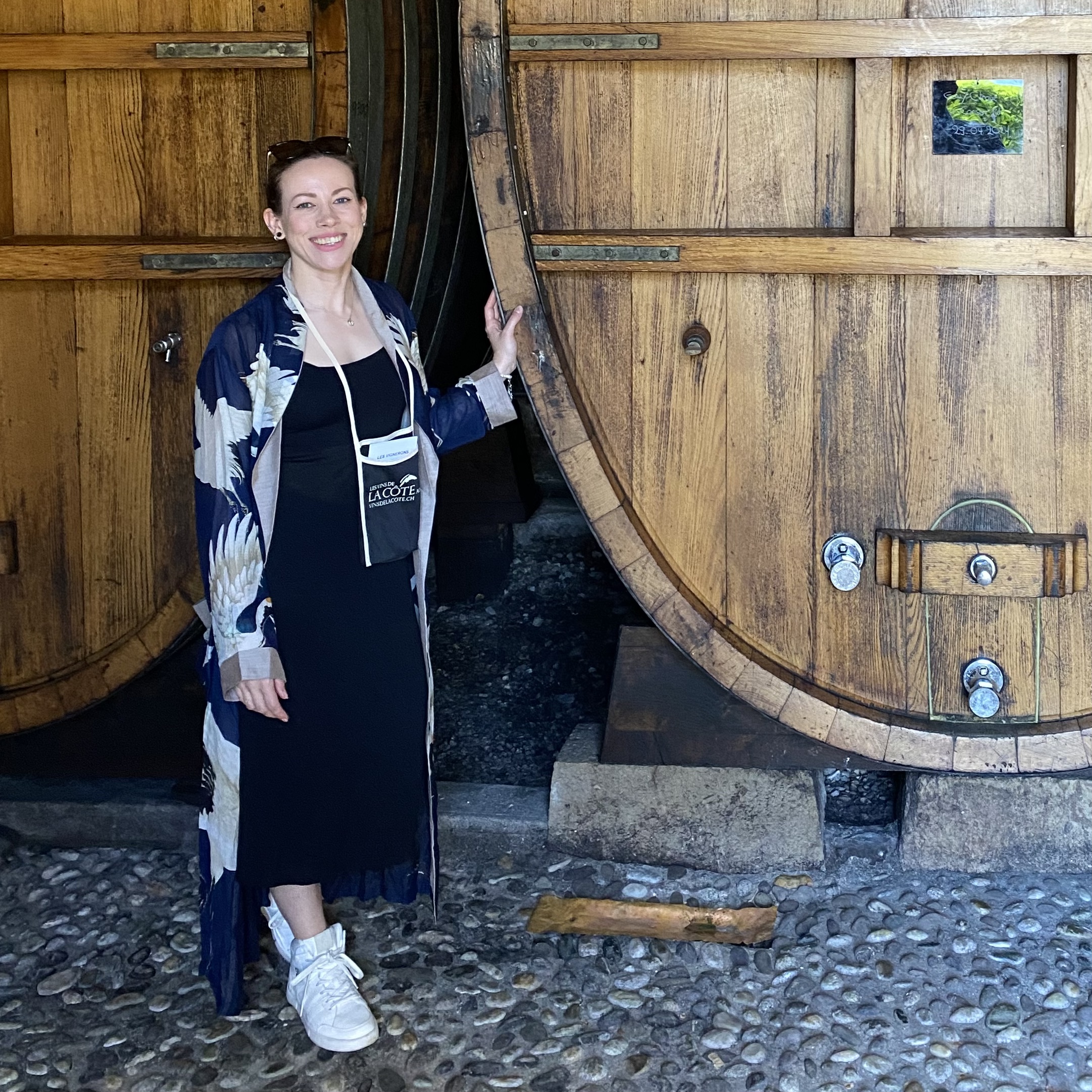
Dr Joseph N. Keating
Joseph is a Lecturer in Biological Sciences at the University of Bristol. He completed an undergraduate degree in Geology with Palaeobiology at the University of Leicester and a PhD at the University of Bristol. Joseph's research explores the transition from jawless to jawed vertebrates, modeling anatomical trait evolution, and methods for reconstructing evolutionary trees with different types of data.

Dr Morten Lunde Nielsen
Morten graduated in geology from the University of Copenhagen (Denmark) before earning a PhD at the University of Bristol’s Palaeobiology Research Group (UK). He currently works outside academia, in the Danish government, but remains active in research in his spare time. His work focuses on reconstructing early Cambrian ecosystems and their dynamics through taphonomic and palaeoecological studies of exceptionally preserved fossils from the Burgess Shale-type Sirius Passet deposit in North Greenland.
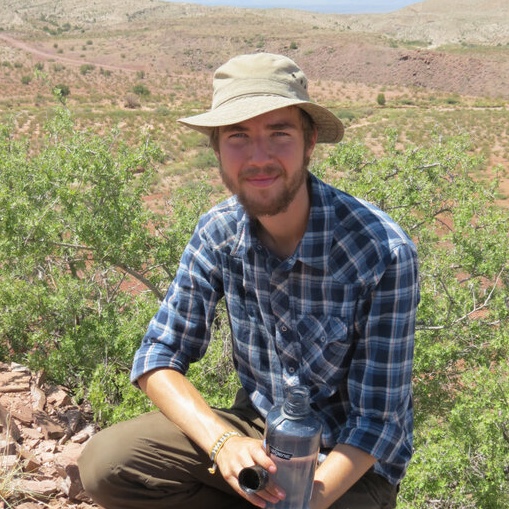
Dr Farid Saleh
Farid obtained his PhD from the Laboratoire de Géologie de Lyon (France) in 2020 before completing a postdoc at Yunnan University (China) and another one at the University of Lausanne (Switzerland). He is currently an SNF Research Fellow at the University of Lausanne, where he works with his group on fossil preservation during the Early Paleozoic. Farid’s research focuses on constraining how various parameters and processes influenced exceptional fossil preservation using sedimentary, mineralogical, geochemical, and statistical approaches.
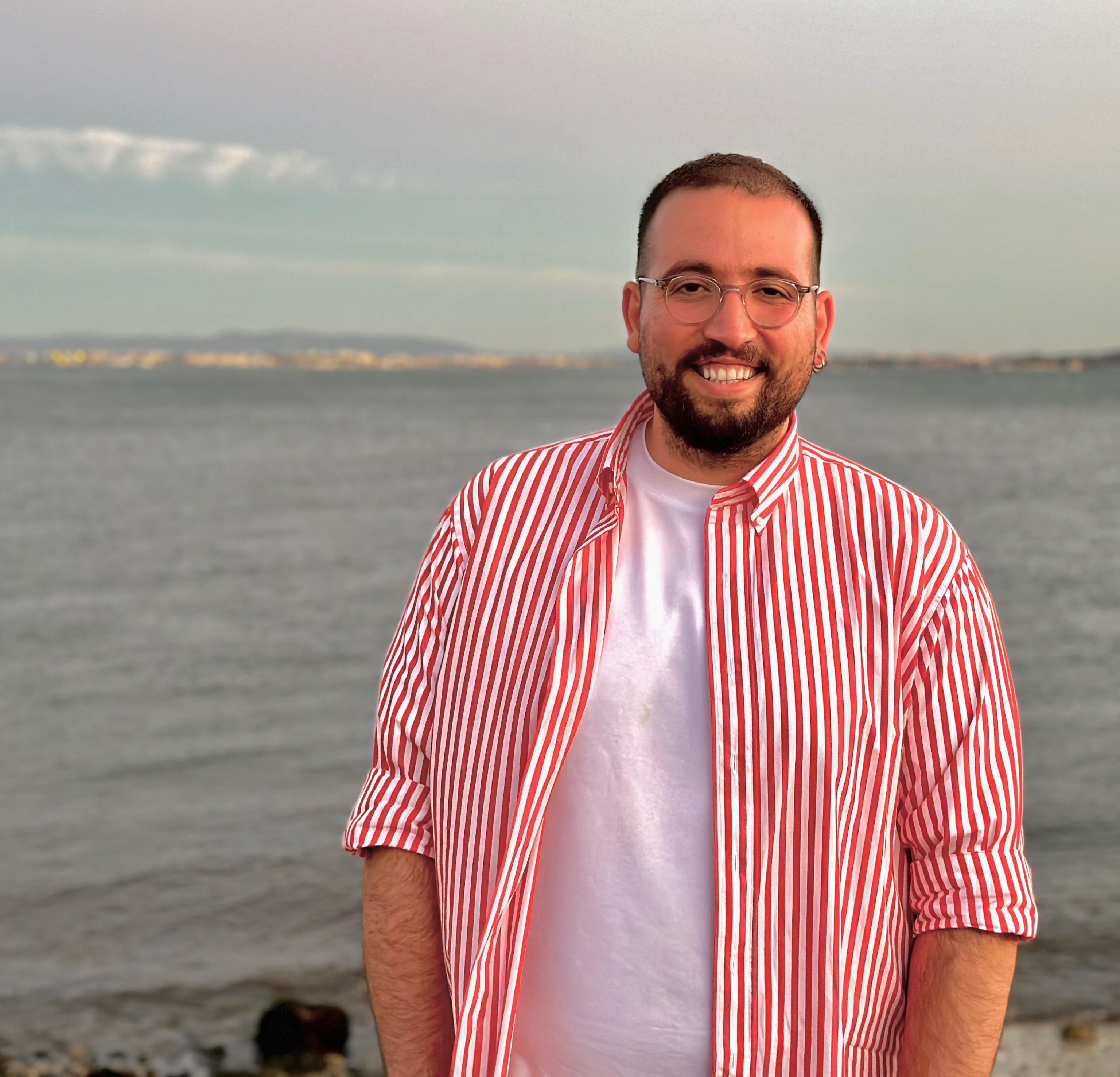
Dr Thomas W. Wong Hearing
Thomas (he/him) is a palaeoclimate scientist at the University of Leicester (UK). Through his work, Thomas tries to shed new light on Earth's ancient climates and environments by combining geological and palaeontological data with computational model simulations. Thomas is motivated by a desire to see science done in ways that are equitable, ethical, and inclusive, and it is this desire that led to his co-founding Open Palaeontology.
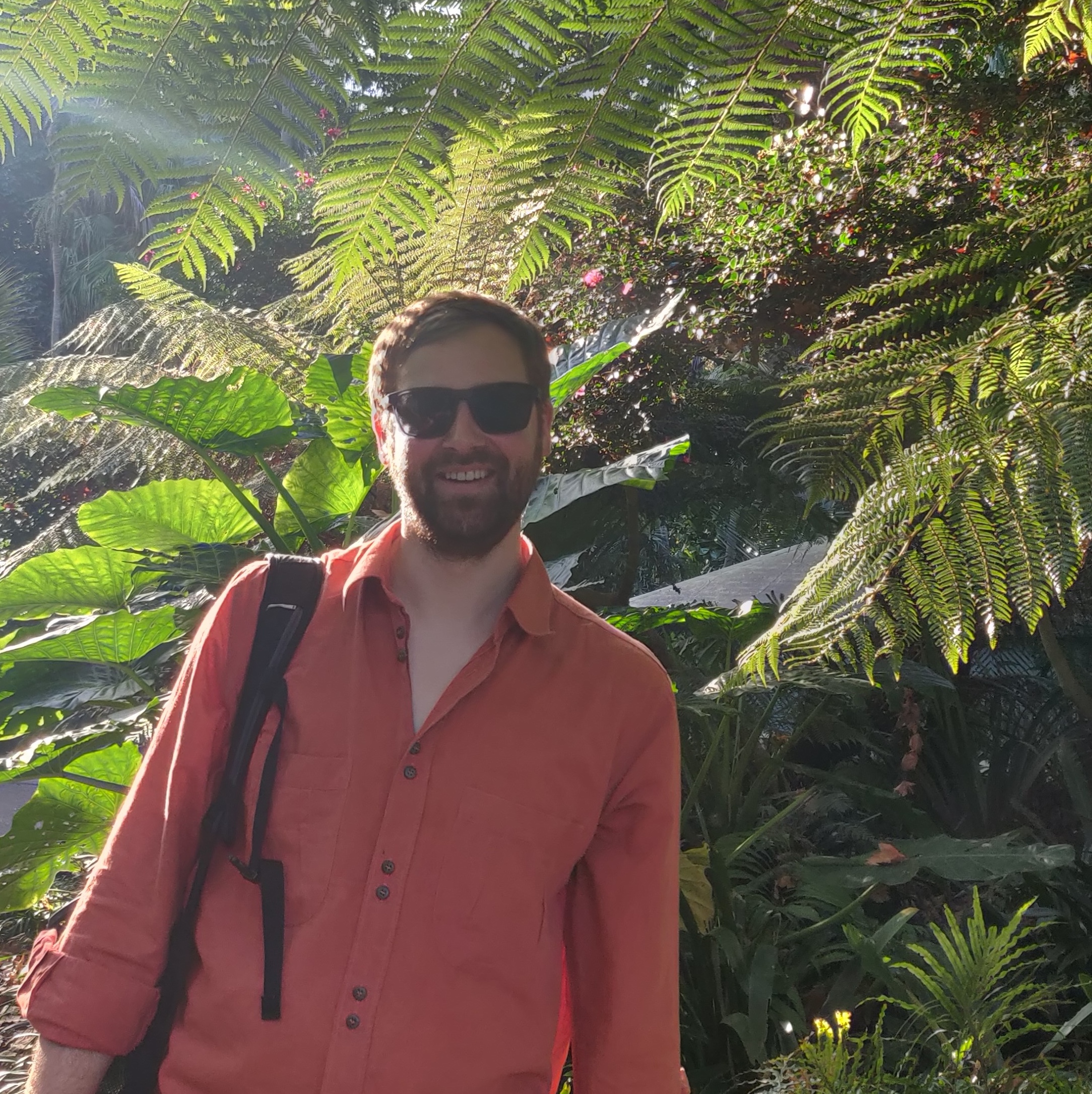
Editorial Team
The Editorial Team is responsible for the day-to-day handling of manuscripts, including editorial decision-making and managing peer review processes, and for developing journal editorial policies. Members of the Editorial Team will take on roles of Handling Editors who will handle manuscript submissions. The current Handling Editors, in alphabetical order by last name, are:
Dr Juan D. Carrillo
Juan D. Carrillo is a vertebrate paleontologist mainly working on mammal Palaeobiology and evolution. After doing his BSc in Colombia, his home country, Juan moved to Zurich, Switzerland where he did his master and PhD. He has also worked as researcher in UK, Sweden and France. Juan is currently a researcher in the Center for Research on Palaeontology (CR2P) at the Muséum national d'Histoire naturelle, in France.
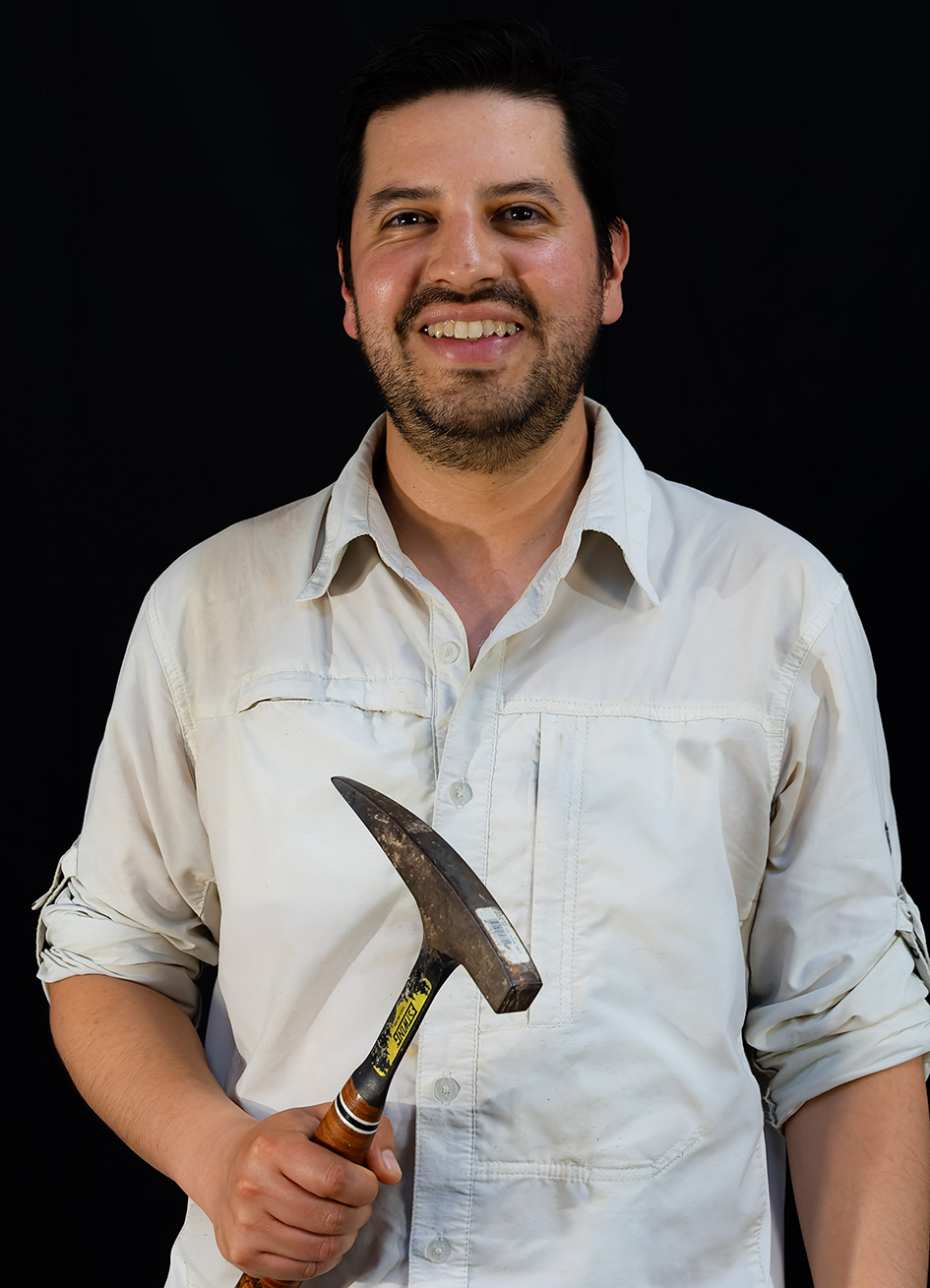
Dr David Cordie
David Cordie received his PhD in geosciences from the University of Wisconsin-Milwaukee. During which he studied archaeocyath reef ecology and extinction in the Great Basin and Mongolia. His current research interests include late Cambrian and Ordovician biodiversity, morphology, and reef development. He has also published on student learning and pedagogy as it relates to climate change sciences. David currently teaches at Edgewood College in Madison, Wisconsin.
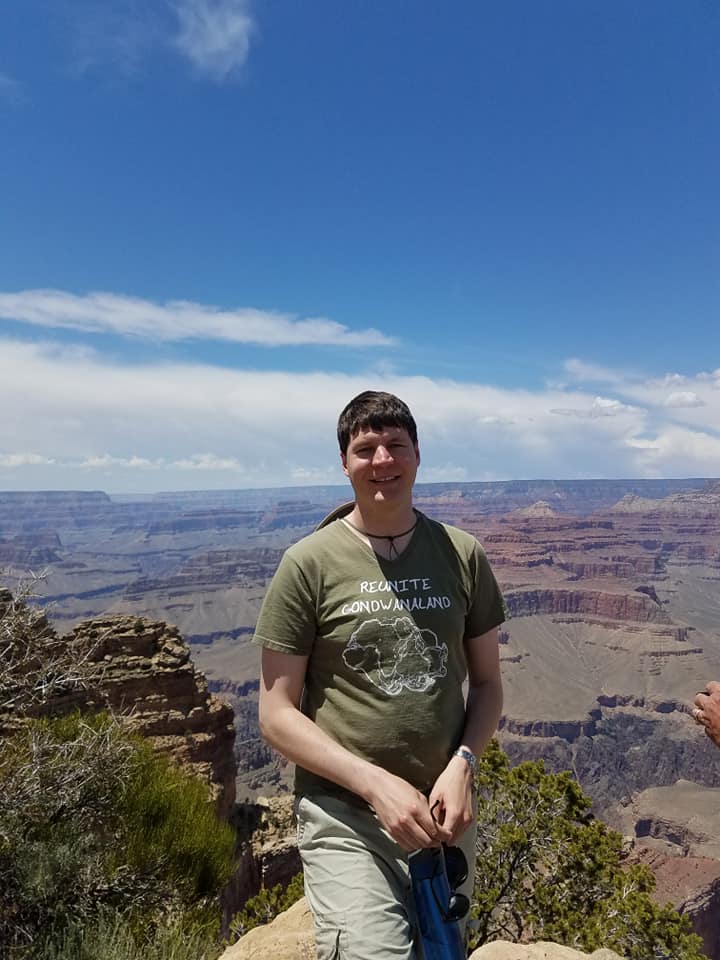
Dr Chris Dean
Chris (he/him) obtained both his undergraduate degree in Geology and his PhD at Imperial College London, and has completed postdocs at the University of Birmingham and University College London. His research is mainly focused on the anthropogenic and geological factors that impact the quality of the fossil record and how these in turn may impact our view and understanding of macroecology and evolution in deep time.
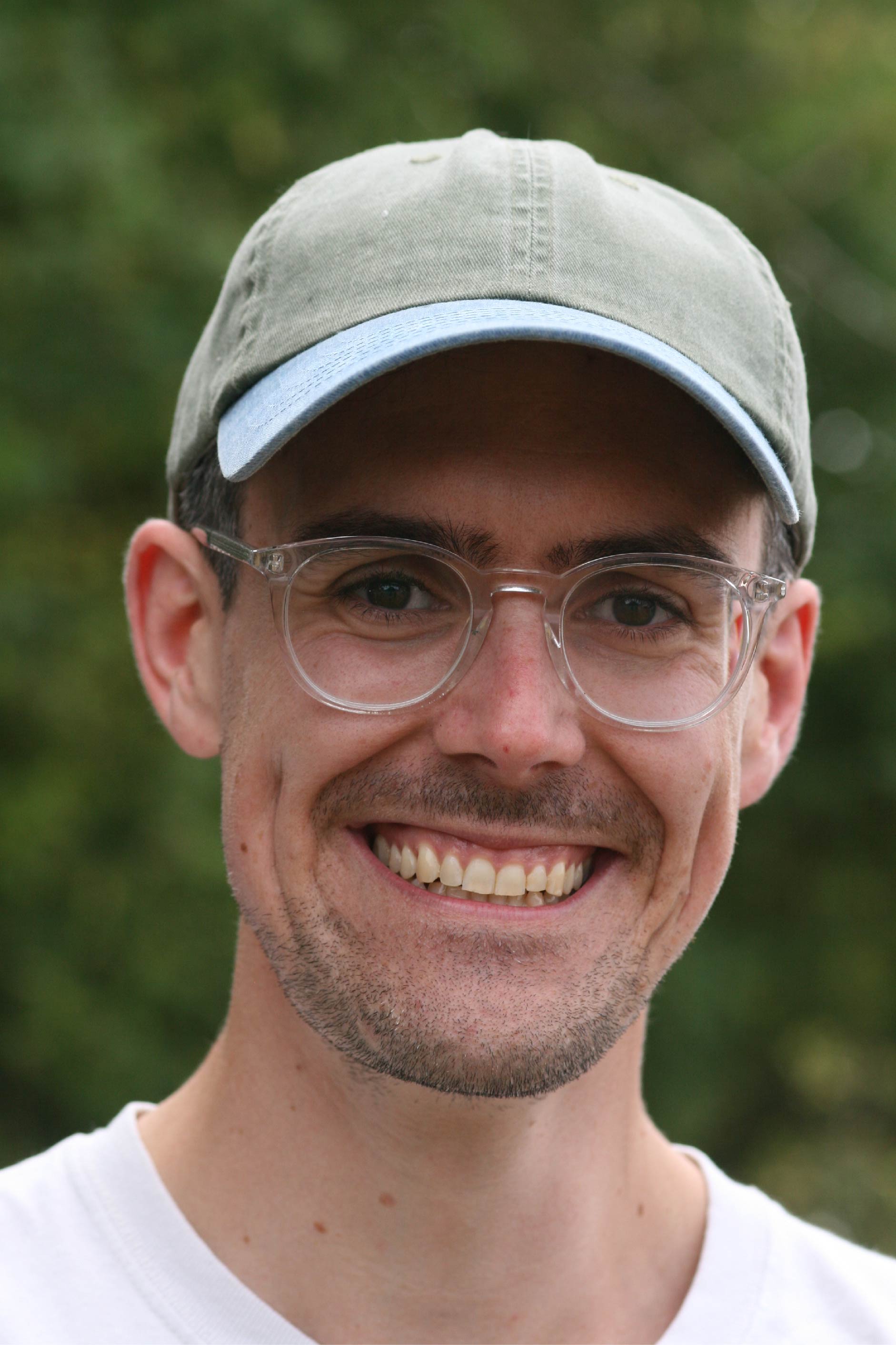
Dr Richard Dearden
Richard is a postdoctoral researcher at the University of Birmingham (UK). Before this he completed a PhD at Imperial College London and postdocs at the Muséum national d’histoire naturelle, Paris and Naturalis Biodiversity Center, Leiden. His research focuses on the evolution of vertebrate groups, using tomographic imaging to visualise their anatomy and phylogenetic methods to determine their relationships, with a focus on cartilaginous fishes (sharks, rays & chimaeras).

Dr Joe Flannery-Sutherland
Joe is a postdoctoral researcher at the University of Birmingham (UK). Before this he completed a PhD at the University of Bristol. His research focuses on the biogeography and diversity of early vertebrate groups, using a variety of phylogenetic and non-phylogenetic computational approaches. He is also interested in developing open source software implementations of new analytical tools for palaeobiology.
Dr William Gearty
Will (he/him) has a PhD in Geological Sciences from Stanford University and is currently a postdoctoral researcher at Syracuse University (USA) where he promotes, teaches, and practices open science and open-source software development practices. He develops open-source R packages revolving around data acquisition, cleaning, and visualization. Outside of this he also conducts research in computational paleobiology. He is particularly interested in integrating paleontological and neontological data with advanced computational tools to better understand the biotic and abiotic constraints and drivers of taxonomic and functional diversity across space and time.
Dr Manon Hullot
Manon Hullot is a paleobiologist specializing in large herbivores, and notably in the reconstruction of their paleoecology (diet, habitat) and the influence of perturbations (climatic and environmental changes, migration). After a PhD from the University of Montpellier (France) on the dietary preferences and stress susceptibility in Miocene rhinocerotids from Eurasia, she did a first post doctorate at the Paleontological Museum in Munich (Germany) on the impact of glaciations on rhinocerotids. She then did a second post doctorate on dental growth in notoungulates (extinct endemic mammals from South America) at the National Museum of Natural History Paris (France). She is now a post doctorate at the JURASSICA Museum working on the paleoecological consequences of the Grande Coupure (Eocene-Oligocene transition) on the perissodactlys.
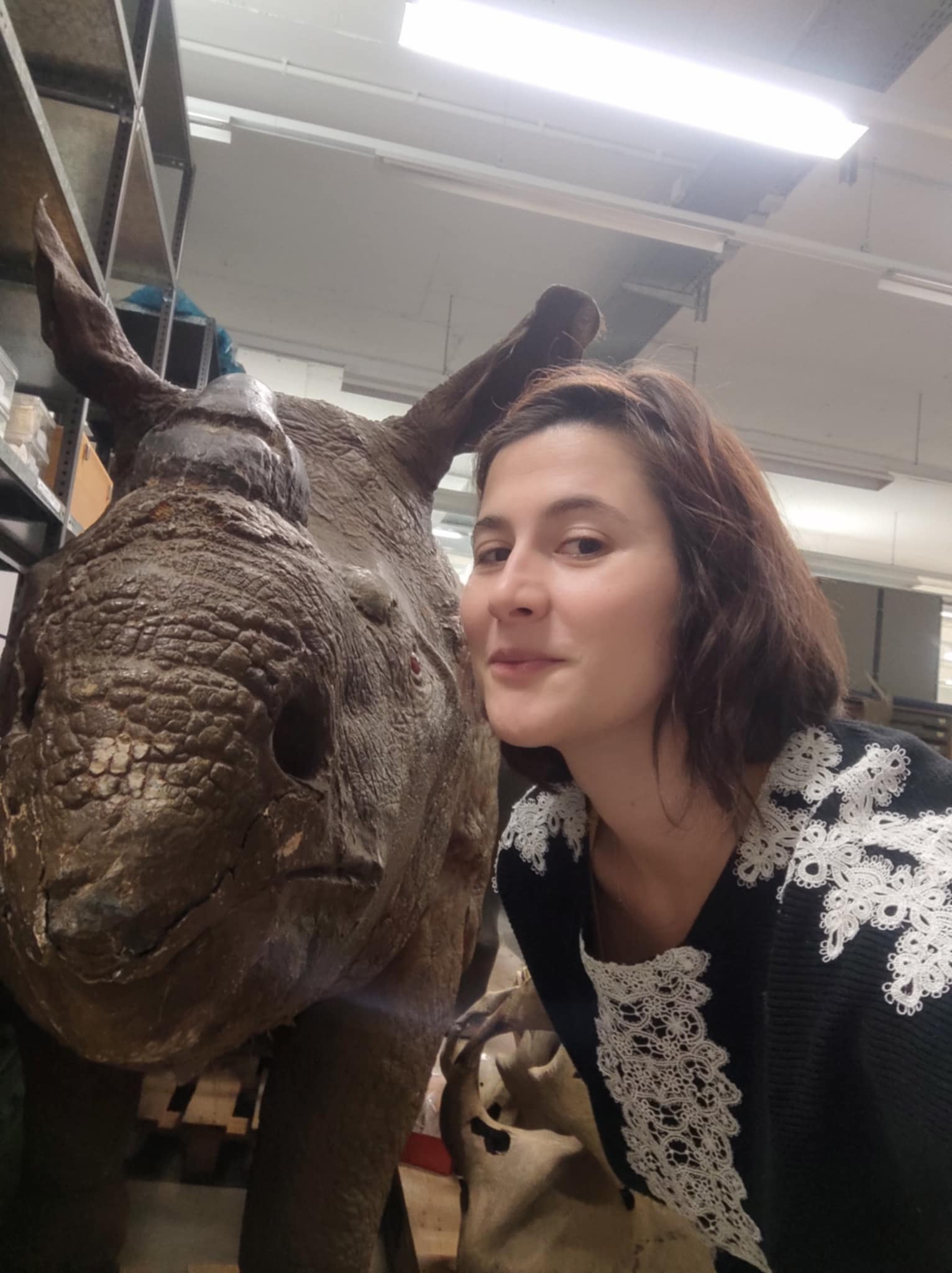
Dr Lewis Jones
Lewis (he/him) is a NERC Research Fellow at University College London (UK). His current research focuses on reconstructing the evolutionary history of marine biodiversity hotspots over the last 66 million years. An additional theme of his research is evaluating the influence of data incompleteness on perceptions of the geological past, such as biodiversity and palaeoclimatic trends. He also works on developing open-source software tools and resources for the research community.
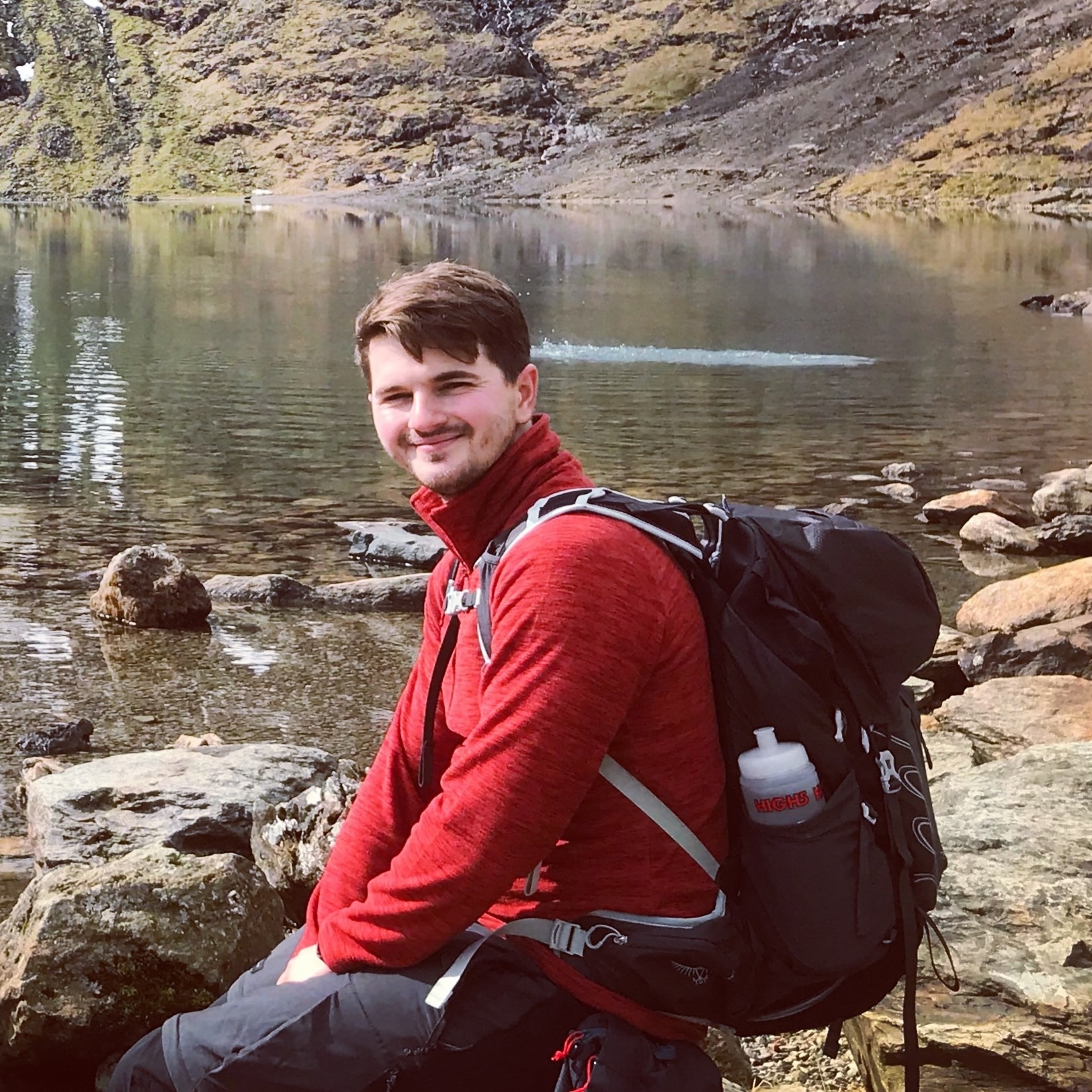
Carolina Klok
Carolina Klok is a PhD student at Ghent University, Belgium, researching organic-walled microfossils.
Dr Lorenzo Lustri
Lorenzo Lustri is an arthropod paleobiologist currently working as a postdoctoral researcher at Yunnan University (China). He obtained his PhD in Paleontology from the University of Lausanne (Switzerland), after completing a BSc in Natural Sciences at the University of Rome and an MSc in Biodiversity and Evolution at the University of Bologna (Italy). His research focuses on the evolution and paleoecology of chelicerates, with particular interest in the Cambrian and Ordovician periods.

Dr Steve Pates
Steve (he/him) is a Lecturer in Invertebrate Palaeontology at University College London. During his PhD and postdoctoral fellowships, he worked at universities in the UK, Switzerland and the USA, and enjoys collaborating with researchers worldwide. His research focuses on the evolution and ecology of arthropods, integrating fossil-based specimen work with computational and simulation-based approaches.
Kelly Tingle
Kelly (she/her) is a PhD candidate in the Department of Earth and Environmental Sciences at Vanderbilt University in Nashville, Tennessee. Kelly’s research interests center on the Precambrian microfossil record. She combines microscopy, petrography, experimental taphonomy, and field-based sedimentology to better understand biosignatures of early eukaryotes and the processes by which microbial eukaryotes become fossilized. Kelly earned a B.A. in Art History from the University of San Francisco, and an M.S. in Marine Science from the University of California, Santa Barbara.
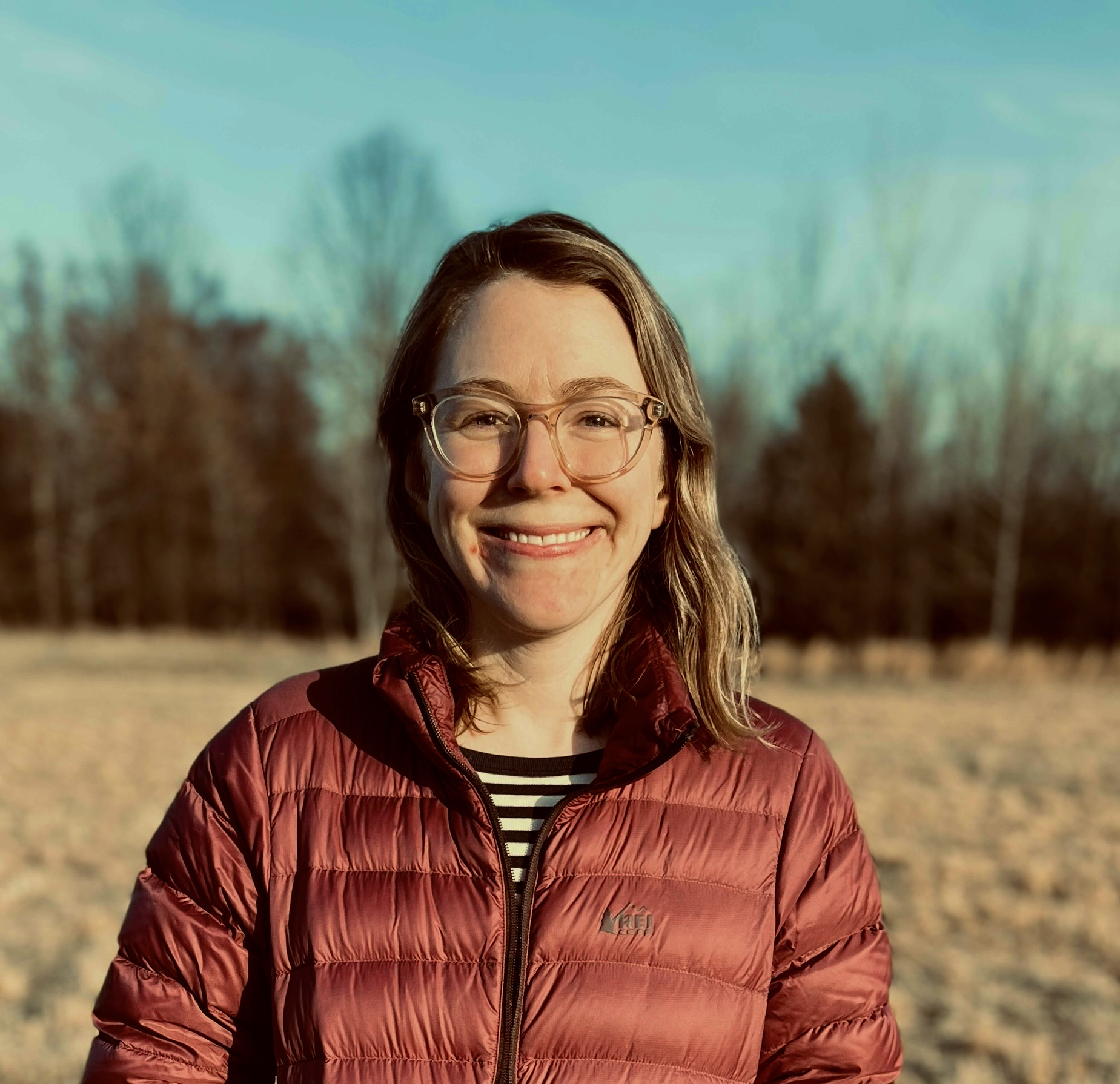
Dr Deng Wang
Deng is interested in the origin and early radiation of Ecdysozoa, with a particular focus on: 1) moulting behaviour and its evolutionary origins; 2) phylogenetic relationships and the timing of divergence among key ecdysozoan lineages, including panarthropods, scalidophorans, and nematoids; 3) the ground pattern (body plan) of ancestral Ecdysozoa; 4) evolution of organ system in Ecdysozoa, such as nervous, musculature, digestive systems and integument. Research materials are significantly based on early Cambrian exceptional fossils (Chengjiang and Kuanchuanpu biotas) and living priapulids. Deng holds an MSc from Northeastern University, where he studied late Carboniferous coral and sponge reefs, and a PhD from Northwest University and Université Claude Bernard Lyon 1 on ecdysozoan origins and early radiation. He subsequently completed a postdoctoral fellowship at Northwest University and started his second postdoctoral fellowship at Durham University.
Equity, Diversity and Inclusion (EDI) Team
The EDI Team is responsible for reviewing processes across Open Palaeontology to ensure that the journal keeps pace with developing best practices. The EDI Team will meet as a separate unit, but will also have representation on each of the other teams (including the Steering Committee) to ensure they have oversight of and input into all current and upcoming developments across the journal.
Communication Team
The Comms Team is responsible for ensuring visibility of Open Palaeontology and the work published therein. Particularly in the early stages, the Comms Team will work to promote the journal to the palaeontological community online and at conferences. The Comms Team will work closely with each of the other teams to develop a house style across the journal’s publication and web presence.
